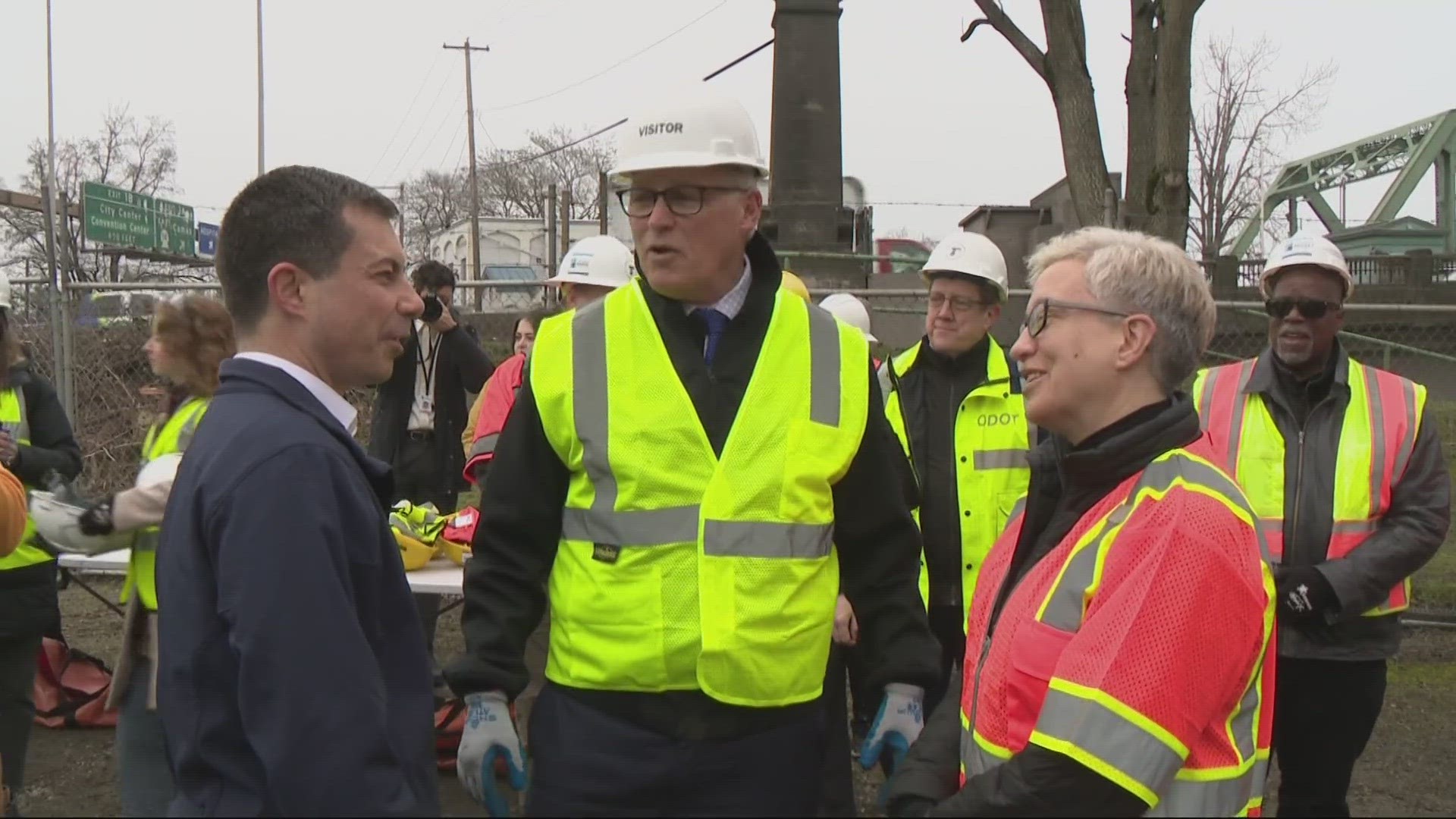VANCOUVER, Wash. — U.S. Secretary of Transportation Pete Buttigieg visited the Interstate Bridge Tuesday morning, joining Oregon Gov. Tina Kotek and Washington Gov. Jay Inslee in Vancouver to talk about the plan to replace the aging freeway crossing.
“This is a big deal. I mean, this bridge is about to turn 107 years old,” Buttigieg said, adding that it "clearly" needs to be replaced.
The estimated $6 billion replacement project has been in the works for years, and the effort recently got a big boost in the form of a federal grant for $600 million to help rebuild the bridge. The current bridge doesn't meet modern freeway standards, and there are concerns about how it would hold up during a major earthquake.
“We know there is some seismic risk everywhere in the Northwest,” Inslee said, “so it’s imperative to get this job done.”
The proposed replacement bridge will look distinctly different from the current twin spans, rising higher above the river in order to give boats space to pass underneath without including a drawbridge section. But it can only go up so high because it still needs to be low enough to avoid interfering with planes arriving and departing Portland International Airport.
“That’s not an easy thing,” Buttigieg said, “so it is going to be an engineering feat.”
The proposal also includes an extension of TriMet's MAX Yellow Line across the river to Vancouver, as well as a larger bike and pedestrian path than the one on the current bridge, in an effort to make the crossing more environmentally friendly.
“It’s more than cars,” Kotek said. “It is about people walking and biking and moving on light rail.”
This isn’t the first time that state leaders in Washington and Oregon have tried to replace the bridge. More than a decade ago, another project also got years into the planning process, but abruptly collapsed in 2013 after the Washington legislature missed a key deadline to line up $450 million for the project.
This time around, Washington and Oregon have collectively put in about $200 million already and have each pledged another $1 billion toward the replacement, with tolling expected to bring in another $1.2 billion. Washington state leaders are optimistic that the current iteration of the project will come to fruition.
“I feel we really got momentum,” Inslee said. “There is a plan on both sides of the river.”
The recent $600 million grant came from the federal Mega Grant program, but the project will still need about another $2 billion in federal funding for completion, and the project team is looking to two other big federal programs to supply those dollars: the Federal Highway Administration's Bridge Investment Program and the Federal Transit Administration's Capital Investment Grants New Starts program.
“I would be shocked if we did not get more applications for more funding to get this done,” Buttigieg said.
He added that he is keeping a close eye on the project, and that it's a promising sign to see Washington and Oregon state leaders working together to build the new bridge. The initial $600 million from the federal government is a "vote of confidence" in that cooperation, he said.
“We’re ready to go,” Kotek said. “We need everything you can give us.”

